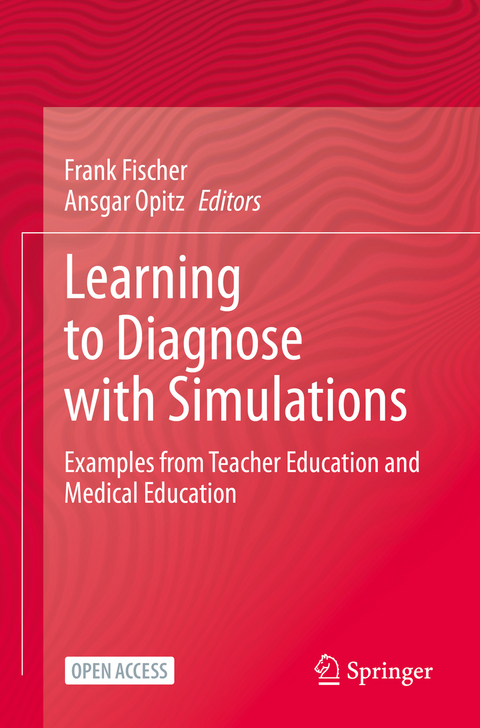
Learning to Diagnose with Simulations
Springer International Publishing (Verlag)
978-3-030-89149-7 (ISBN)
This open access book presents 8 novel approaches to measure and improve diagnostic competences with simulation. The book compares the effects of interventions on these diagnostic competences in both teacher and medical education. It includes analyses showing that important aspects of diagnostic competences and effects of instructional interventions aiming to facilitate them are comparable for teachers and doctors.
Through closely analyzing projects from medical education, mathematics education, biology education, and psychology, the reader is presented with multiple options for interventions that may be used in each of the subject areas and the improvements in diagnostic skills that could be expected from each simulation.
The book concludes with an outline of promising future research on the use of simulations to facilitate professional competences in higher education in general, and for the advancement of diagnostic competencies in particular.This is an open access book.lt;p>Frank Fischer studied psychology at the Universities in Trier and Aachen, obtained a doctorate in 1997 from Ludwig Maximilian University (LMU) in Munich. After professorships in Erfurt and Tübingen, he became a full professor for educational science and educational psychology at LMU. His research focuses on digital learning, collaborative learning, scientific and diagnostic reasoning, as well as evidence-based practice in education. He served as the Director of the Department of Psychology and Dean of Faculty at LMU. He was the president of the International Society of the Learning Sciences. He has been the director of the Munich Center of the Learning Sciences, which involves researchers and their workgroups from 8 faculties who engage in interdisciplinary research projects and in international masters' and PhD programs in the learning sciences.
1. A theoretical framework for learning diagnostic competences with simulations.- 2. Diagnosing primary school children's mathematical competences and misconceptions based on their written work.- 3. Diagnosing mathematical argumentation skills in secondary school based on videos of students attempting to construct proofs.- 4. Diagnosing 6th graders´ understanding of decimal fractions - A role-play-based simulation for mathematics teacher students of diagnostic interviews featuring simulated teacher-student interactions.- 5. Diagnosing the instructional quality of biology lessons based on staged-videos.- 6. Diagnosing secondary school students´ scientific reasoning skills in physics and biology - A video-based simulation for pre-service teachers.- 7. Diagnosing students' behavioral, developmental and learning disorders based on records of behavior and performance.- 8. Facilitating Medical History Taking through Live and Computer Simulations.- 9. Learning collaborativeDiagnosing in Medical Education - Diagnosing a Patient's Disease in Collaboration with a Simulated Radiologist.- 10. Using simulations to facilitate professional competences: promising trajectories for future research.
| Erscheinungsdatum | 13.02.2022 |
|---|---|
| Zusatzinfo | VI, 157 p. 59 illus., 56 illus. in color. |
| Verlagsort | Cham |
| Sprache | englisch |
| Maße | 155 x 235 mm |
| Gewicht | 260 g |
| Themenwelt | Geisteswissenschaften ► Psychologie ► Pädagogische Psychologie |
| Medizin / Pharmazie ► Medizinische Fachgebiete ► Psychiatrie / Psychotherapie | |
| Schlagworte | Diagnosing primary school children's mathematical competences • Diagnosing primary school children’s mathematical competences • Instructional quality of biology lessons • Learning diagnostic competences with simulations • Mathematical argumentation skills in secondary school • open access • Students' behavioral, developmental and learning disorders • Students’ behavioral, developmental and learning disorders |
| ISBN-10 | 3-030-89149-6 / 3030891496 |
| ISBN-13 | 978-3-030-89149-7 / 9783030891497 |
| Zustand | Neuware |
| Haben Sie eine Frage zum Produkt? |
aus dem Bereich


